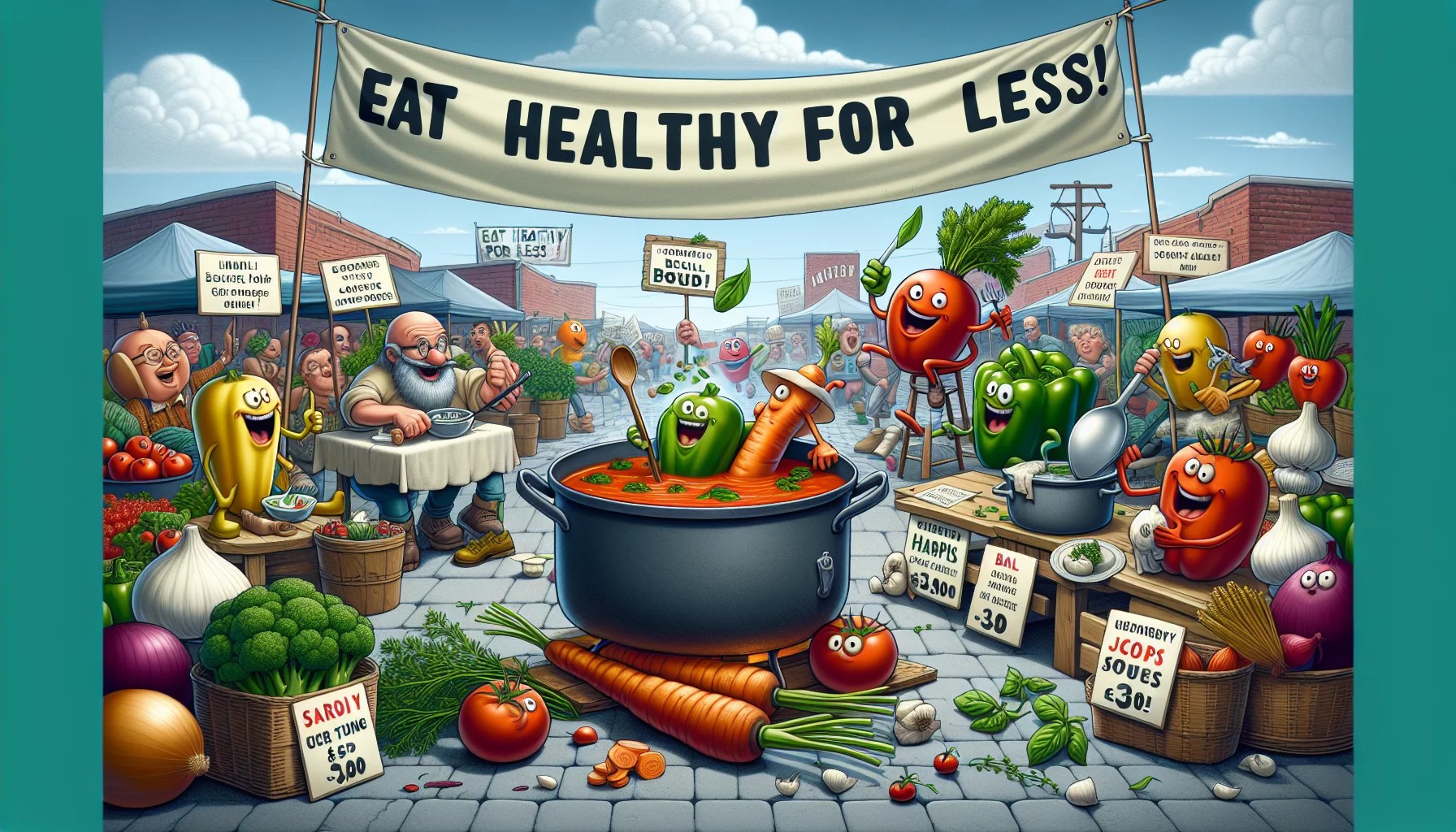Things to add to tomato soup Quiz
Test Your Knowledge
Question of
7 Healthy Additions to Elevate Your Tomato Soup
Tomato soup is a classic comfort food, beloved for its simplicity and rich flavor. But did you know that with a few nutritious additions, you can transform this humble dish into a powerhouse of health benefits? By incorporating some carefully selected ingredients, you can elevate your tomato soup into a healthier, more satisfying meal that not only warms your heart but also nourishes your body. Let's explore how to make your next bowl of tomato soup a feast of nutrition.
Integrating healthy ingredients into meals is crucial for maintaining a balanced diet and ensuring our bodies receive the nutrients they need to function optimally. Tomato soup serves as an excellent example of a versatile base that can be enhanced with a variety of nutritious additions. Rich in vitamins C and K, potassium, and folate, tomatoes offer a wealth of health benefits, including improved heart health and reduced risk of certain cancers. By adding ingredients like beans for protein, spinach for iron, or carrots for beta-carotene, we can transform a simple tomato soup into a nutrient-dense meal that supports our overall health and well-being. Embracing tomato soup as a canvas for healthy ingredients is a delicious and easy way to enrich our diet and enjoy the benefits of a wholesome meal.
Healthy Ingredients to Add to Tomato Soup
- Spinach: Rich in vitamins A, C, and K, iron, and antioxidants. Supports eye health, reduces oxidative stress, and improves heart health.
- Garlic: Contains compounds with potent medicinal properties, helps combat sickness, including the common cold, and reduces blood pressure.
- Chickpeas: High in protein and fiber, supporting digestive health and helping in weight management.
- Carrots: Packed with beta-carotene, which is converted into vitamin A in the body, supporting good vision and immune function.
- Lentils: Great source of plant-based protein and fiber, contributing to muscle repair and promoting a healthy digestive system.
- Quinoa: Gluten-free, high in protein and one of the few plant foods that contain all nine essential amino acids. It is also high in fiber, magnesium, B vitamins, iron, potassium, calcium, phosphorus, vitamin E and various beneficial antioxidants.
- Kale: One of the most nutrient-dense foods, containing large amounts of vitamins A, K, C, and B6, manganese, calcium, copper, potassium, and magnesium.
How to Incorporate These Ingredients
Adding healthy ingredients to tomato soup can enhance its flavor and nutritional value. Start by sautéing onions and garlic in olive oil to form a flavorful base. You can then add chopped carrots and celery for a subtle sweetness and crunch. Incorporating leafy greens like spinach or kale can be done towards the end of cooking to retain their color and nutrients. For an extra boost of protein and creaminess, consider blending in cooked white beans or adding a dollop of Greek yogurt. Don't forget to season with herbs like basil or oregano to complement the tomato flavor. These simple additions can transform a basic tomato soup into a hearty and nutritious meal.
Opting for homemade tomato soup over store-bought versions offers a plethora of benefits, particularly when it comes to health and nutrition. One of the most significant advantages is the control it gives you over the ingredients. This means you can avoid the high levels of sodium, sugar, and preservatives often found in canned soups. By selecting fresh, organic tomatoes and other ingredients, you're not only enhancing the flavor of your soup but also ensuring it's packed with vitamins and antioxidants without unnecessary additives. Moreover, making tomato soup at home allows you to tailor the recipe to your dietary needs, whether that's reducing salt for blood pressure management or avoiding allergens. In essence, homemade tomato soup is not just a comforting meal; it's a healthier choice that empowers you to nourish your body with the best possible ingredients.
| Addition | Calories | Protein (g) | Fiber (g) | Vitamins/Minerals |
|---|---|---|---|---|
| Spinach | 7 | 0.86 | 0.7 | High in Vitamin K, A, C, and Folate |
| Lentils | 116 | 9.02 | 7.9 | Rich in Iron, Folate, and Magnesium |
| Quinoa | 222 | 8.14 | 5.2 | High in Magnesium, Phosphorus, and Manganese |
| Chickpeas | 269 | 14.53 | 12.5 | Good source of Protein, Fiber, Folate |
| Carrots | 41 | 0.93 | 2.8 | High in Beta-Carotene, Vitamin K1, Potassium |
| Coconut Milk | 552 | 5.5 | 5.3 | Rich in MCTs, Potassium, Magnesium |
| Garlic | 4 | 0.19 | 0.1 | Contains Allicin, High in Vitamin C, B6 |
Conclusion
Integrating healthy ingredients into tomato soup not only elevates its nutritional value but also enhances its flavor profile, making each spoonful a delightful experience. From the addition of leafy greens for a vitamin boost to incorporating lean proteins for a more filling meal, the possibilities are endless. We encourage you to embrace the art of experimentation in your kitchen, mixing and matching ingredients to create a tomato soup that not only warms the body but also nourishes the soul. Embrace this journey towards a more nutritious and delicious meal, and let your culinary creativity flourish.












